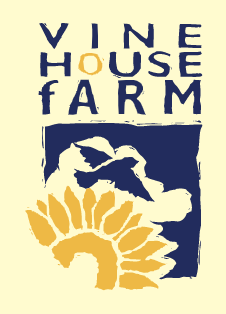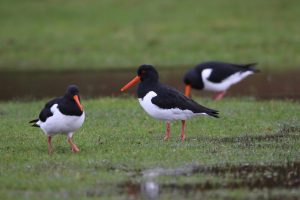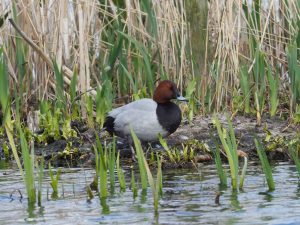
It is the dryness of this summer, and so many sunny days, that will make this year memorable as it was a drier June and July than 1976, but not quite so warm. My records show that June and July of 2006 were actually warmer than this year, and 1976, here in South Lincolnshire.
There was also more rain here at Deeping St Nicholas in 2006, so in my mind that would make it a better summer but how many of us remember 2006 as a good summer? May 2006 was wetter than average and there was more rain in June and July, while in 1976 we had a dry winter and that spring the many of the seeds we sowed in the fields never germinated. I remember my father saying the farm was like a desert after he had walked across two fields in July. For the record, the average temperature for June and July in 2006 was 18.8ºC, for 1976 it was 18.28ºC and for 2018 it was 18.22ºC.

It was the wet weather of April that caused us the most problems on the farm, as we could not get our crops sown. All our bird seed crops are spring sown and the delay meant they were not
sown until mid May. We had 17mm of rain on May 24th and then none until July 27th, but amazingly those spring crops have put their roots down and look like producing reasonable crops. The 16mm of rain we received on July 28th gave our bird seed crops, sugar beet and potatoes a welcome drink.
The farmers near King’s Lynn received over 50mm or 2ins of rain. The wheat harvest started on July 24th, only in 1976 did it start earlier, and yields this year on our Fenland are up to average. It is the amount of sunshine in June that determines our wheat yield, but it can get too hot for the wheat plants. When temperatures get above 25ºC, the plants tend to shut down. It is the coastal areas of north east England and southern Scotland, which seldom get above 25ºC and have longer daylight than us in Lincolnshire, that actually get the highest wheat yields in the world.
The sunflowers are now in full flower and can be viewed from the public road in Baston Fen – they look gorgeous. If you want to see them they will only be in bloom for a couple of weeks.
The red clover down the farm also looks very good and next to it is a field of spring barley with a few sunflowers growing in it, a very colourful scene. The barley was sown with peas, the idea being that the peas make nitrogen available to the barley as they are a legume, and the barley will keep the peas upright. The seeds of the barley and the peas are a different size, so they can be separated quite easily.
We did grow peas on their own one year but they are very open and let the weeds through in huge numbers so we didn’t want to grow peas on their own again. Because the organic crops are doing well we are converting more land to organic production.
Last year, straight after fields were harvested, we were going round drilling oil radish as a catch crop, but it is far too dry for any seeds to germinate. Oil radish is a plant with a good taproot and helps to break the soil up, helping the next crop to get its roots down quicker.


The dry weather has not suited all the birds. Blackbirds and Thrushes have been unable to have a successful last brood, as they could not reach the worms to feed their young. Where they have had access to gardens that were feeding suet, soaked sultanas and/or live mealworms, they were able to rear that last brood.
However, its not just getting the brood to fledge – the young Blackbirds, Thrushes and Robins get fed by their parents for about two weeks after they have fledged and then they are out on their own. They are inexperienced and in this dry weather many of them would not survive. The Tit family and Starlings only have one brood and the young are looked after by their parents or uncles and aunts for the rest of the year, as they go about in family flocks.
Lapwings that were able to rear young on their first attempt reared several young. Those that started late, or their first brood failed, did not do so well as the ground dried out and food was less available for them
Barn Owls are not doing too badly here at Vine House Farm, but others say they have had very few pairs breeding and all the boxes are occupied by Jackdaws. It is not that the Jackdaws have turned the Barn Owls out, because if the Barn Owls want the site they will turn the Jackdaws out. I have ten pairs breeding and one pair in a box which is not breeding. Broods are mainly ones or twos.
Corn Buntings made an appearance on Vine House Farm for about three weeks in the second half of July. There were four singing at one time around our crop of organic red clover. They could clearly see all the food in the crop in the way of insects. I did see female on more than one occasion being chased by a male but I don’t think we had a brood that was reared on the field. Male Corn Buntings will go and explore and set up a territory outside their core area, but getting one of the females to come out of the core area when it is a shrinking population doesn’t often happen. Two females bred on Chestnut farm and I did find one of the nests.
In general, our garden wildlife is doing quite well as it is getting cared for. It is those birds out on the farm that are declining, as they do not get the supplementary food that they do in the gardens. I do put a lot of food out around the farm, but I haven’t yet found the time to put some out in every field!
We’re looking forward to the Birdfair at Rutland Water, on August 17th-19th. We’ll be in Marquee 7, stands 1-3. I will be giving a talk on Farming and Wildlife on Saturday at 9.30am in the Merlin lecture theatre and will be on the panel of experts on Sunday morning in the events marquee at 10am.
Events
- Fri 17th – Sun 19th August – Birdfair Rutland Water



